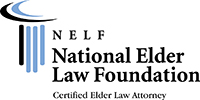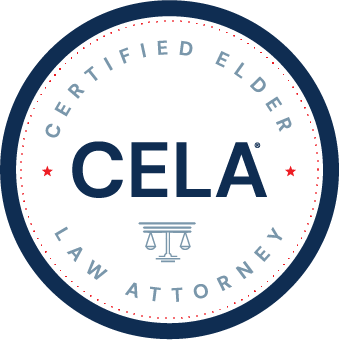Firm News
Sandstead-Corona v. Sandstead
Every once in a while, I make a point to report on an important court decision that has a significant impact on estate and trust planning. In the spring of 2018, the Colorado Supreme Court made such a decision in a case by the name of Sandstead-Corona v. Sandstead (“Sandstead”). The ruling by the Court greatly expanded a probate court’s jurisdiction or control over property that would normally pass outside of probate such as joint tenancy accounts, payable on death accounts and other property or accounts with a specific beneficiary designation. Prior to Sandstead, it was very clear that a joint account, payable on death account, or a beneficiary designation passed outside of probate and the terms of the Will and went directly to the surviving joint tenant or designated beneficiary.
The Sandstead case involved a dispute between two sisters, Shauna Sandstead-Corona and Vicki Jo Sandstead over how to divide the deceased mother’s estate. Prior to her death, the mother, Auriel, deposited money from the sale of the family farm into a joint tenancy account with all three names on the account. The purpose of depositing the money into the joint account with all three names was to make sure the money would pass outside of probate.
Later, Auriel agreed to allow Vicki Jo to move the money to a new joint tenancy account at a different bank with just Auriel’s and Vicki Jo’s names on the account as joint owners. The money was to be used by Vicki Joe to pay for Auriel’s care.
Auriel died and Shauna was appointed as Personal Representative of Auriel’s estate. Shauna filed a surcharge claim against Vicki Joe for moving the money into the new account. A surcharge action is a lawsuit to make a person personally liable for an act done in a fiduciary capacity.
There was a trial in Logan County. The trial court determined that Vicki Jo had improperly accounted for and unnecessarily spent funds before and after Auriel’s death. The Court ruled that Vicki Joe should have held the joint account money in an “implied trust” for the benefit of both Shauna’s and Vicki Jo’s benefit.
The Colorado Supreme Court affirmed the Logan County District Court decision. The Colorado Supreme Court held that Vicki Jo was in a “confidential relationship” with her mother after she moved the money to the new joint bank account. When Vicki Jo misspent the money, she abused that confidential relationship thereby justifying the imposition of an implied trust over the money.
Vicki Jo had argued that the money was in a joint account and she became the owner of the account when her mother died. As a result, a court cannot create an implied trust over money that is not part of her mother’s probate estate.
A critical part of the Court’s ruling to impose an implied trust over the joint account was whether there was a “confidential relationship” between mom and Vicki Jo. A confidential relationship may arise when one person occupies a position of superiority over another with the opportunity to use that superiority to the other’s disadvantage. Other factors that will give rise to a confidential relationship include:
- If one party has taken steps to induce another to believe that he or she can safely rely on the first party’s advice.
- If one person has gained the confidence of the other and purports to act or advise with the other’s interest in mind, or
- If the parties’ relationship is such that one is induced to relax the care and vigilance that one would ordinarily exercise if dealing with a stranger.
Once a confidential relationship is established by the facts and circumstances of a case that will open the flood gates for a lawsuit for fraud, undue influence, over reaching or other improper conduct.
If your parents, spouse or other family member passed away and all or part of their property passed to one or more people by joint tenancy or beneficiary designation, or you believe a person acting under a power of attorney abused this discretion, you should contact this office to determine if the holdings of the Sandstead case will allow you to file a claim. Depending on your case, we will charge an hourly rate or may take the case on a contingency fee arrangement.
On the other side of the coin, family members need to be very careful if they are assisting a parent, spouse or other person with paying bills and helping manage their money. Bank tellers and financial advisors or sales people do not understand the significance on how to designate ownership of an account. A uninformed mistake by a bank teller or financial advisor may create years of litigation for you. Talk to your attorney.












